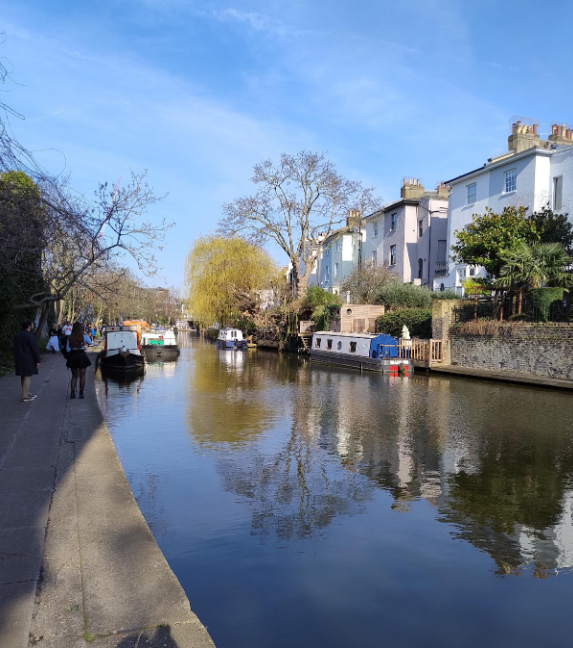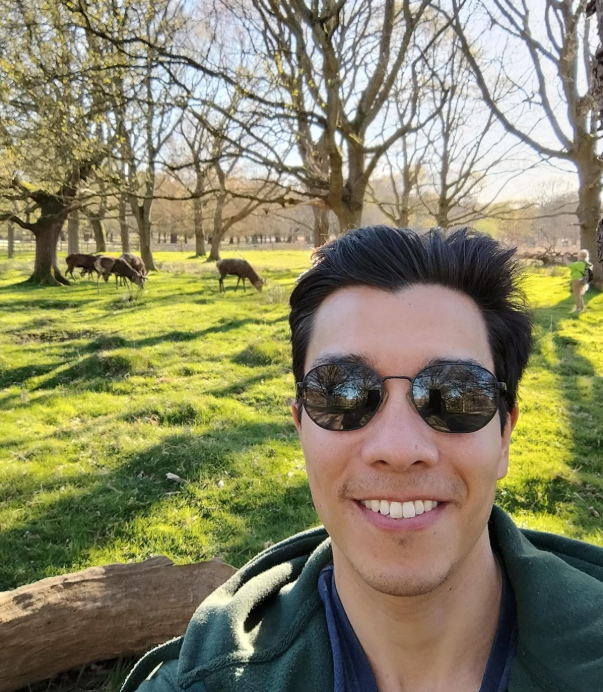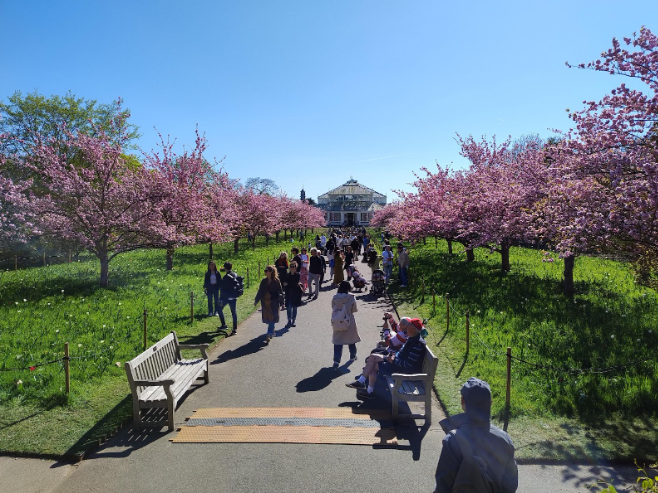David: Exploring industry practice in offshore foundations
We’re excited to share a new blog post from David, reflecting on his 7-week research stay at SLPE in London. From coding his own wave equation solver to exploring cutting-edge industry practices, the experience offered valuable technical growth—and a few unexpected sunny days in the UK!
I spent 7 weeks at Sea and Land Project Engineering (SLPE) in London, where I had the privilege of working with Dr. Saleh Jalbi, Dr. Jacques Tott-Buswell, and Dr. Stephen Williams. The primary purpose of my visit was to acquire knowledge on the state of the practice of driveability analyses, which are essential for the design and installation of offshore monopiles.
In particular, I learnt about the Wave Equation Analysis of Piles (WEAP), which consists of the solution of a one-dimensional wave equation using the Finite Difference Method, discretizing the driving system and the monopile as a system of lumped mass, springs, and dashpots. Thanks to the guidance of Stephen, I could develop my own code to solve the WEAP and validate it using the most commonly used commercial software. Very interesting exercise trying to match results proving different solution approaches and different non-linear connections between the hammer and pile. A win-win, as now I could use more accurate impact force in my numerical simulations and SLPE could improve their in-house driveability software.
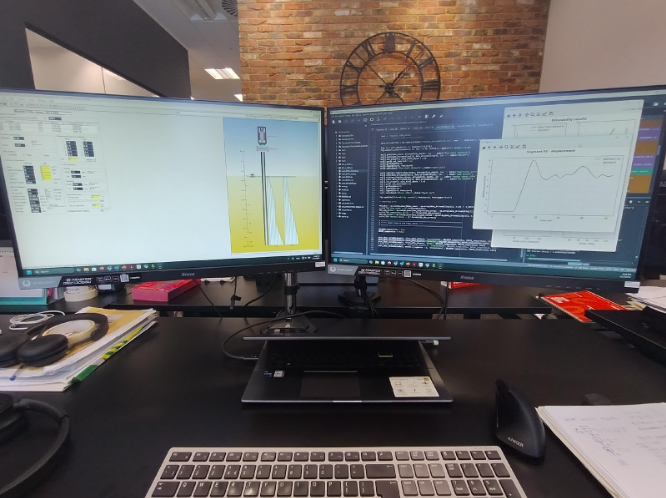
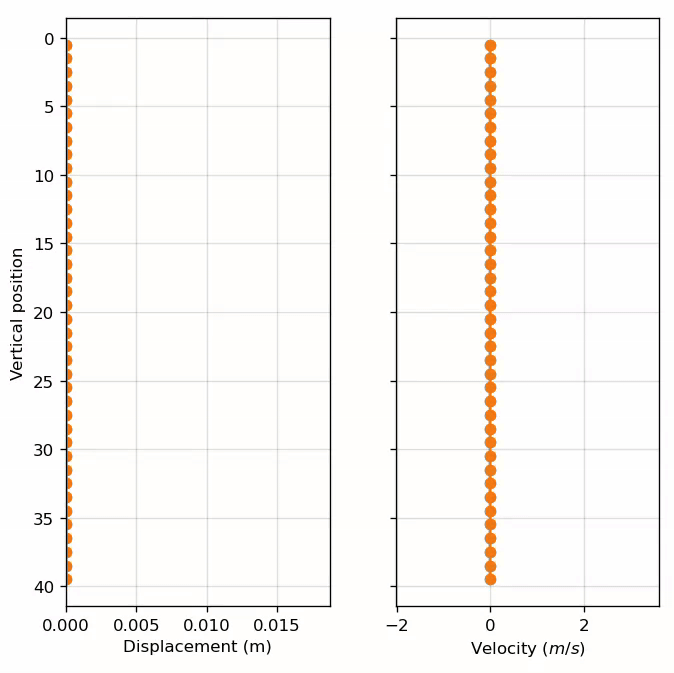
At SLPE, I was also allowed to observe the rigorous analysis that was conducted during their daily work. For example, they perform three-dimensional finite element analysis to investigate the fatigue of various connections during monopile driving, and they are developing a p-y method for monopiles under multi-direction loading. It is very amazing to see that level of detail in consultancy. I hope that in the future my driveability analysis, based on the Geotechnical Particle Finite Element Method (G-PFEM), could also be used in industry.
In general, my stay at SLPE was very useful to gain some specific experience in offshore wind engineering. Furthermore, working with the advanced engineering department at SLPE was a very rewarding experience, as I could improve my solver-problem and coding skills. Skills that are going to be fundamental for a successful finish of my PhD.
My stay in the UK coincided with the beginning of spring. Although the first week was a little bit cold, the weather quickly got better, and I could enjoy sunny days during my stay. What a contradiction! I traveled from Barcelona to London, and I got more sun and less rain! … lovely, but a reminder of the effects of climate change and the need to support initiatives like FRONTIERS that aid in the energy transition. Anyway, thanks to the sunny days, I enjoyed nice walks and picnics in the green areas of London like Richmond Park, Kew Garden and Battersea Park.
